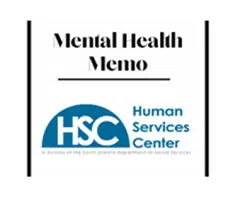For many of us the holiday season is a time of joy and family togetherness, but, as we age, the hustle and bustle of the holiday season can become overwhelming and isolating. As we all rush to the many events that happen during this season, it can be easy to forget about our loved ones who may be residing alone at home or in a care facility. According to the Suicide Prevention Resource Center, “as many as 1 in 3 community-dwelling older adults experience loneliness. Rates of loneliness among older adults are two times higher in long-term care settings than in community settings”. It’s more important than ever to be supportive of and attentive to our loved ones in ways that keep everyone as safe and healthy as possible. Here are a few ways to encourage your elderly loved ones during the holiday season.
Deck the Halls: Helping your loved one decorate their room or home may encourage them to get into the holiday spirit and allow you to spend some quality time with them making new memories.
Happy Holidays, Happy Baking: Plan a time to meet with your loved one to spend time in the kitchen. Preparing holiday snacks can be a very beneficial way to spend time with those that you love, and you may even learn some of those secret ingredients!
Presence > Presents: It is important to remind your loved one that you care about their presence more than the presents. Many elderly individuals can become overwhelmed when they are unable to make it to the store to purchase presents for their loved ones.
Providing a supporting environment for the elderly during the holiday season can be very important for their mental health. During the holiday season, feelings of isolation may be increased due to the busy nature of the holidays. Keeping the above tips in mind could help decrease the risk of your loved ones feeling isolated during this time of year.
For more resources on how you can help support someone’s mental health, visit SDBehavioralHealth.gov.
#30
The mission of the (HSC) is to provide individuals with a mental health or substance use disorder or both with effective, individualized professional treatment enabling them to achieve their highest level of personal independence in the most therapeutic environment.
The mission of the Division of Behavioral Health is to strengthen and support children, youth and adults with behavioral health needs through prevention and early interventions services, community-based substance use disorder and mental health services, crisis care and recovery support services and psychiatric hospitalization. The goal of the continuum of behavioral health services is to foster independent and healthy individuals and families in South Dakota.
To read previous editions of the Mental Health Memo visit https://dss.sd.gov/keyresources/news.aspx#mhmemo.








Comments